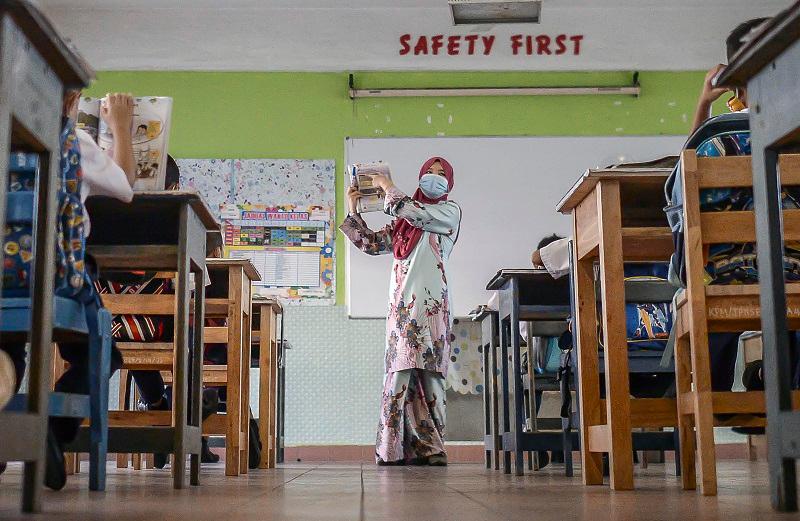WHEN Malaysia’s education minister recently declared that the public needs to accept new Malay words because the Malay language is a “living language”, one cannot help but wonder if this statement was made with due consideration for linguistic reality.
While no one denies that languages evolve, the approach to such evolution matters significantly, especially when the so-called “new” words already have widely accepted equivalents, or worse, when they border on absurdity.
A living language thrives on organic growth. It adapts to societal needs, borrowing words or coining new ones when there is a genuine linguistic gap.
However, introducing words like katimbang to replace the perfectly functional daripada or peluncuran instead of pelancaran, defies this principle. Such changes do not stem from societal demand or linguistic necessity but from an imposed top-down decree.
Linguists like Noam Chomsky argue that language is shaped by its users, not by arbitrary mandates. In this case, the minister’s claim that the public is “beginning to accept” these words feels like an exaggerated claim, given that no evidence suggests
any real grassroots acceptance. If anything, these terms are being shoved down the throats of officials and the public alike, creating confusion and perhaps, resistance.
Such words are not being “embraced” because they fill a void; they are being forced into public discourse during official events and government documents.
Officials, under pressure to adhere to the new terminology, scramble to use these words correctly, often resulting in embarrassing missteps and unnecessary confusion.
Take for instance the introduction of mahsul for “harvest” or intiha for “ending”. The Malay language already has perfectly functional and familiar words for these concepts, such as hasil and penamat. Why complicate matters?
Similarly, tatakelola (effective administration) and kebinekaan (diversity) are either redundant or already understood within their original context. Adding layers of unnecessary complexity undermines the accessibility of the language, alienating the people it seeks to serve.
Linguistic experts often emphasise that language evolution must be driven by usage and practicality. Professor Emeritus Datuk Dr Teo Kok Seong, a respected linguist, has previously pointed out that introducing unfamiliar terms risks alienating speakers and causing them to abandon the language altogether.
If Malaysians already struggle to maintain fluency in Bahasa Malaysia in an increasingly English-dominated global environment, why add to the confusion with terms that feel forced and out of place?
Instead of fostering pride in our national language, this approach risks making Bahasa Malaysia a subject of ridicule. Imagine saying, “Walhasil, tiwikrama kebinekaan negara kita memerlukan tatakelola yang baik” during a speech.
While the statement may be linguistically correct, it is also unnecessarily convoluted, obscuring the intended message. Language is meant to communicate, not to confuse.
The minister’s claim also reflects a troubling trend: the use of narratives that are not grounded in reality. Malaysians are not asking for new terms like purbasangka (prejudice) when prasangka is already understood. Nor are they eager to adopt taakul (reasoning) when pemikiran serves the same purpose. Worse, words like intiha and walhasil feel archaic, as if they belong in
an 18th-century Malay manuscript rather than contemporary communication.
Forcing such terms into public use under the guise of progress is counterproductive. It alienates the audience it seeks to engage – Malaysians from all walks of life
who simply want a language they
can understand and use
effortlessly. Introducing unnecessary complications only widens the gap between the language and its users.
At its core, my concern is about ensuring Bahasa Malaysia remains relevant, accessible and functional for all Malaysians. The introduction of new words should serve a purpose – filling linguistic gaps or adapting to modern realities, not complicating communication.
If the goal is to preserve and elevate Bahasa Malaysia, the focus should be on improving proficiency, encouraging its use in meaningful ways and ensuring that it remains a unifying force in a diverse nation.
Furthermore, language policy should consider the opinions of experts and the people who use the language daily. Linguists globally agree that language evolution
should enhance communication, not hinder it.
At its best, the minister’s statement is right in that, Bahasa Malaysia (and all languages) is a living language but that does not justify unnecessary or forced changes that complicate its use and alienate its speakers.
Instead of celebrating the uniqueness of our national language, imposing such words risk making our language the subject of mockery and frustration.
The education minister must open her eyes to the real challenges
faced by Malaysians in embracing Bahasa Malaysia. Do not add to
these challenges with linguistic experiments that confuse rather
than clarify. The focus should be
on strengthening the language’s relevance and accessibility, preserving its beauty and functionality, and ensuring that all Malaysians, not just a select few, can use and appreciate it.
Let our language evolve naturally, driven by the needs of its people, not by artificial impositions. Otherwise, we risk turning this “living language” into a relic of bureaucratic misadventure.
While I may not be a language expert, I am a well-read person and an experienced communicator. In communication, the ultimate rule is to ensure people understand and embrace your message.
Confusing the public with unnecessary changes to language for the sake of novelty or to fulfil a “feel good” agenda serves no one and risks eroding the very foundation of our linguistic heritage.
Prof Mohd Said Bani Che Mat Din is a communications specialist and a passionate advocate for the national language and heritage, with extensive experience in delivering clear, impactful and meaningful messages to diverse audiences. Comments: letters@thesundaily.com









